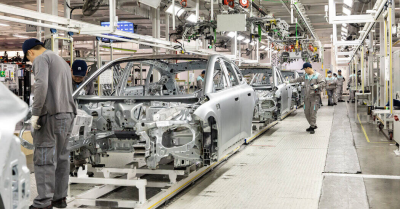纽约时报中文网 - 英文原版-英China Deflation Alarms Raised by Falling Prices for Food and Cars
February 9, 2024 2 min 402 words
这篇报道指出,食品和汽车价格的下降引发了通缩警报,突显了中国经济面临的挑战。通缩可能反映了消费疲软和供应过剩,这对于一个试图实现经济转型和消费升级的国家来说是个不利信号。这种情况可能加剧经济增长放缓的压力,特别是在全球经济不稳定的环境下。中国政府需要采取积极措施来刺激消费和投资,以避免通缩的进一步恶化。同时,这也提醒我们在追求经济增长的过程中需要更加注重结构性问题,而不只是简单追求数量的增长。
Consumer prices fell last month in China by the most since the global financial crisis in 2009, the latest sign that weak spending and a glut of output from factories and farms are forcing businesses to offer discounts.
The decline in consumer prices was mostly confined to food and electric cars. But wholesale prices charged by factories and other producers also fell last month, and have been down from their levels a year earlier in every month since October 2022.
A broad decline in the overall level of prices, a phenomenon known as deflation, could be very troublesome for the economy. Falling prices make it hard for households and companies to keep up on monthly payments for mortgages, corporate loans and other debts.
“The deflation data add to a raft of other economic indicators that, on top of a struggling stock market and unraveling property market, pose an extraordinary challenge to the command and control approach of the Chinese government,” said Eswar Prasad, a professor of trade and economics at Cornell University.
China’s stock markets have fallen sharply this year, although they have trimmed their losses this week. China said on Wednesday that the official most directly responsible for oversight of the stock markets, Yi Huiman, had been replaced as leader of the China Securities Regulatory Commission. Mr. Yi, 59, was replaced by Wu Qing, a longtime regulator.
The decline in prices does have one silver lining for China: It makes Chinese goods even more competitive in overseas markets. As many Chinese families have become increasingly wary of spending, manufacturers of everything from electric cars to solar panels are ramping up their exports to distant markets.
Consumer prices dropped 0.8 percent in January from a year earlier, a much larger drop than expected. That decline was driven by falling food prices, including a plunge of 17.3 percent in the price of pork.
The price of pork can be volatile, especially around Lunar New Year, when family celebrations tend to push up demand. In 2023, the holiday fell in late January, likely pushing pork prices higher for the month. This year it’s nearly three weeks later, meaning prices could jump in February.
Excluding food, consumer prices were up 0.4 percent. Falling prices for electric cars were offset by slowly rising prices for clothing, health care and tourism.

